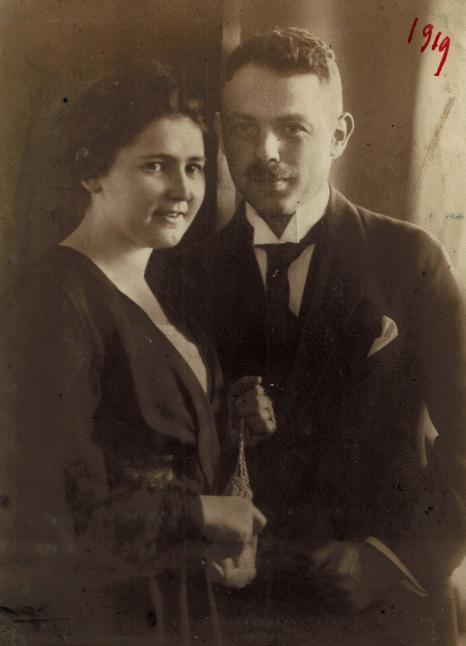By Marjorie Barkin Searl

Frederick (Fritz) Blum was born on February 9, 1889, in Frankenthal, Rhineland-Palatinate Germany. He studied to be a lawyer, and served Germany in World War I, during which he suffered from gas poisoning. Following the war, he settled in Nuremberg, Germany, and joined a law firm as a corporate lawyer. In his memoirs, he documented the businesses and professionals that came from the small Jewish community in Nuremberg and how they contributed to the economic success of the community. All was well until 1933, when the unlikely alliance of Hitler, Papen and Schröder put Hitler in charge of the country. Nonetheless, Blum was a firm believer that the laws were incorruptible, and that right would win out. In 1933, the Aryanization of Jewish businesses meant that Fritz Blum was asked by many to plead their case to the government and prevail by legal means to keep their businesses in their own hands rather than turn them over to Nazis. In April 1933, boycotts of Jewish businesses coincided with the banning of Jewish lawyers and judges from the Hall of Justice, with the exception of those who had served at the Front in World War I. Until 1938, Blum worked to assist the Jewish community by helping to sell their businesses and transfer the money to the country where they were to emigrate. Until 1935, he believed that things would sort themselves out and he advised his clients to remain in Germany. After that, as laws that isolated and controlled Jews became more prevalent, he lost hope and encouraged people to leave. His son Moshe went to study in Italy, and then moved to Palestine. Fortunately, Blum had a friend in Hans Bolta, a non-Jewish business owner who had emigrated to America, started a rubber factory, and tried to help the Blums to leave. Unfortunately, Kristallnacht intervened on November 9. Blum had a wife and two young daughters as well as other family members. Over the subsequent days, his home was invaded, and their belongings trashed.
Blum was arrested twice, severely beaten, and by the intervention of a former client, he was spared deportation to the Dachau concentration camp. While suffering the loss of most of his property, but his life and those of his immediate family being saved, he left Germany as soon as possible and found refuge in Palestine. There, they lived with their son in a kibbutz, From there, they moved to Lawrence, Massachusetts in 1939 and Fritz worked as a legal consultant for the Bolta factory. After studying personnel relations and law at Northeastern University, he became the firm’s personnel manager. He helped to expand the firm in South America and Europe, and continued in that capacity after Bolta merged with General Tire and Rubber Co. After retirement, they moved to Rochester, where he died on November 1, 1968.


